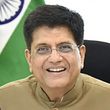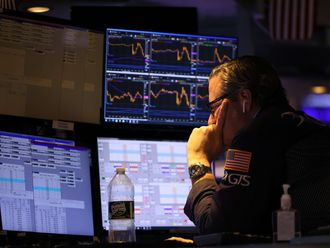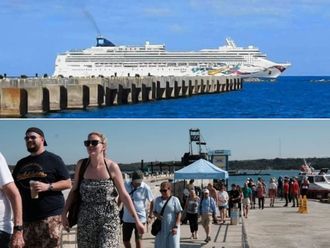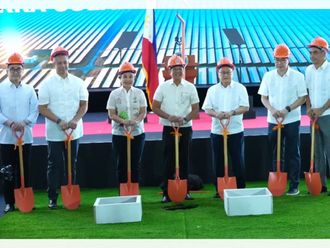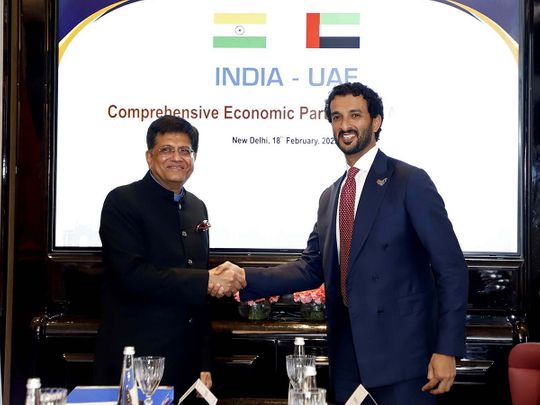
Exactly one year ago today, on February 18, 2022, the UAE and India embarked on an exciting new chapter in our long and fruitful relationship.
On that Friday evening in New Delhi, His Highness Sheikh Mohamed bin Zayed Al Nahyan, President of the UAE and Ruler of Abu Dhabi. and Prime Minister of India Narendra Modi witnessed the signing of the UAE-India Comprehensive Economic Partnership Agreement (CEPA) – a landmark accord designed to enhance strategic cooperation between our nations and propel regional growth.
As the UAE’s first bilateral trade deal and India’s first with a country in the MENA region, it was a genuine milestone but, more importantly, a reflection of our shared belief in the power of economic openness and integration. By removing or reducing tariffs on more than 80 per cent of product lines, enhancing market access to services exports, facilitating investment flows into priority sectors, and providing a platform for SMEs to collaborate and scale, we were envisioning a new era of opportunity in an uncertain world.
For the UAE, the CEPA would offer our exporters seamless entry to the fifth-largest economy in the world, a nation with a rapidly emerging middle-class and a burgeoning technology ecosystem.
For India, it promised a gateway to emerging economies in the Middle East and Africa, and a dynamic, business-friendly platform for industries and innovators to flourish.
For us both, it would secure supply chains and offer a pathway to $100 billion in annual non-oil trade by the end of the decade.
It seems remarkable that such a far-reaching and ambitious agreement was successfully negotiated in less than three months. However, this deal wasn’t forged in a matter of months but over more than five decades of trust, collaboration and exchange.
This UAE-India CEPA was less an economic revolution than a logical next step for two countries whose histories have become so indelibly entwined.
In the year since the signing, and across the nine months since full implementation, all the metrics indicate this deal wasn’t only welcome but, in a challenging economic environment, very much necessary. In 2022, the value of non-oil bilateral trade reached $49 billion, a 10 percent increase on 2021 and a significant stride towards our 2030 target.
India’s exports to the UAE grew 26 percent and re-exports climbed 10 percent, underlining our status as a vital trade enabler. The Dubai Chamber of Commerce also reported that they had registered 11,000 new Indian companies in 2022, bringing the total to more than 83,000, which will further strengthen the economic and cultural bonds between us.
Beyond the balance-sheet
Of course, there is more to the CEPA’s success than statistics. Both of us have led our respective delegations to each other’s country to further deepen these ever-strengthening bilateral economic linkages.
In March 2022, Mr. Piyush Goyal led a high-level delegation, comprising of senior government officials, Indian exporters and industry leaders to the UAE in an effort to galvanize our businesses towards greater collaboration under the then newly established CEPA ecosystem.
A little over a week ago, H.E. Al Zeyoudi led a delegation of officials, business leaders and entrepreneurs to India, which offered considerable brick-and-mortar evidence of the collaboration being catalyzed.
In Bengaluru, for instance, Ducab Group launched a new regional office, which will enable it to better serve the Indian energy and construction sectors with its market-leading cables and metal products. Then, during the UAE delegation’s visit to the Global Investor Summit in Uttar Pradesh, a review was undertaken of UAE’s private sector’s $2.5 billion investment into renewable energy, logistics, retail, and food processing projects in India’s most populous state – all of which have the potential to create 20,000 jobs.
Fast-tracked initiatives
They follow several other significant partnerships launched since May 2022, such as the 300MW hybrid renewable energy project in Gujarat and the sustainable food parks across India that will utilize advanced technologies to reduce waste and conserve water. Last year, DP World launched the Dubai Incubator Center, a technology accelerator platform set up in partnership with Invest India and the Start-Up Kerala Mission to encourage innovation across India’s logistics sector.
The complimentary nature of our relationship is yet to reach its true potential. If some of the recent, post-CEPA investments from the UAE to India are any guide, then the sky, as they say, is the limit for our collaboration. There are many potentially path-breaking initiatives that are on the anvil, be it the ‘Virtual Trade’ corridors or the potential set-up of offices of the Abu Dhabi Investment Authority in GIFT City in the Indian State of Gujarat.
We are just warming to a future of limitless possibilities and win-win collaborations between our two countries.
These types of dynamic joint ventures embody the real potential of our CEPA: the fusion of all forms of capital – human, technological and financial – to develop and deploy solutions that can have genuine world-changing impact.
A changing economic map
Critically, the UAE and India’s partnership will ensure our nations can capitalize on the changing global economic map – an ever-evolving landscape with Asia at its heart. According to the IMF, the Asia and Pacific Region will lead global growth this year, with a projected GDP increase of 4.6 per cent. Over the next five years, the ASEAN and South Asian regions, excluding China, will lead the world in both export and import growth.
A year ago, in a spirit of positivity and possibility, the UAE and India came together to embrace these new realities and set our nations on a path to greater growth and prosperity. It is our firm conviction that the UAE-India CEPA will not only be seen as a significant turning point in our economic stories, but a long-standing model for cross-border collaboration.



